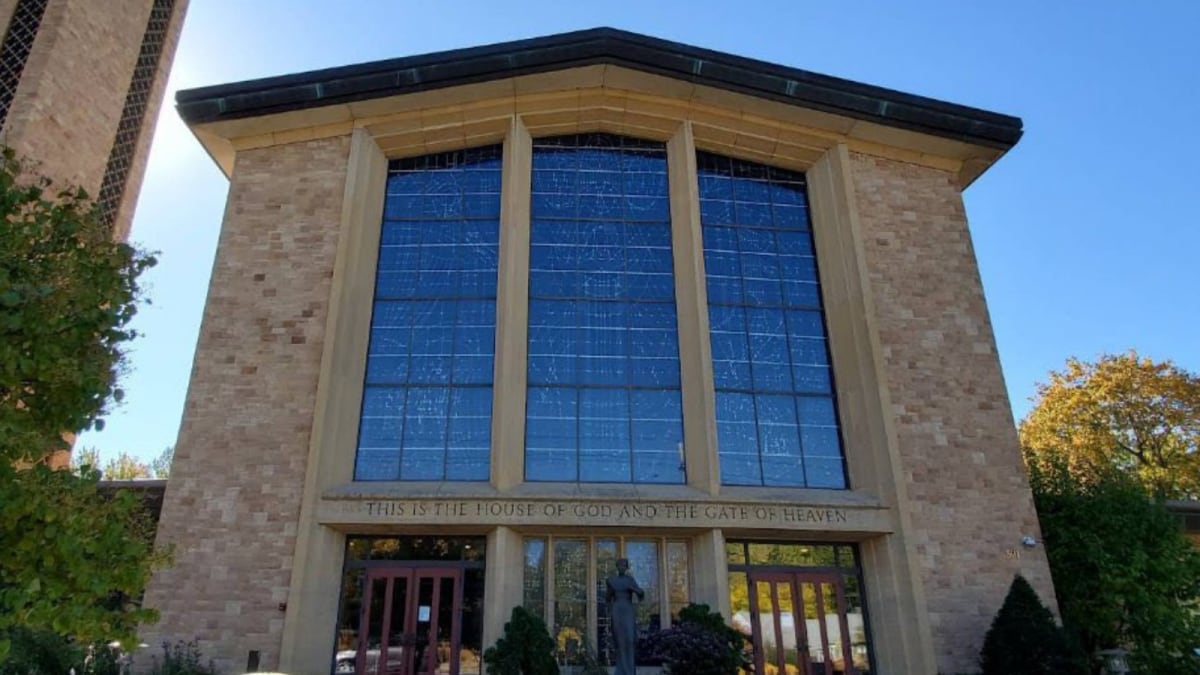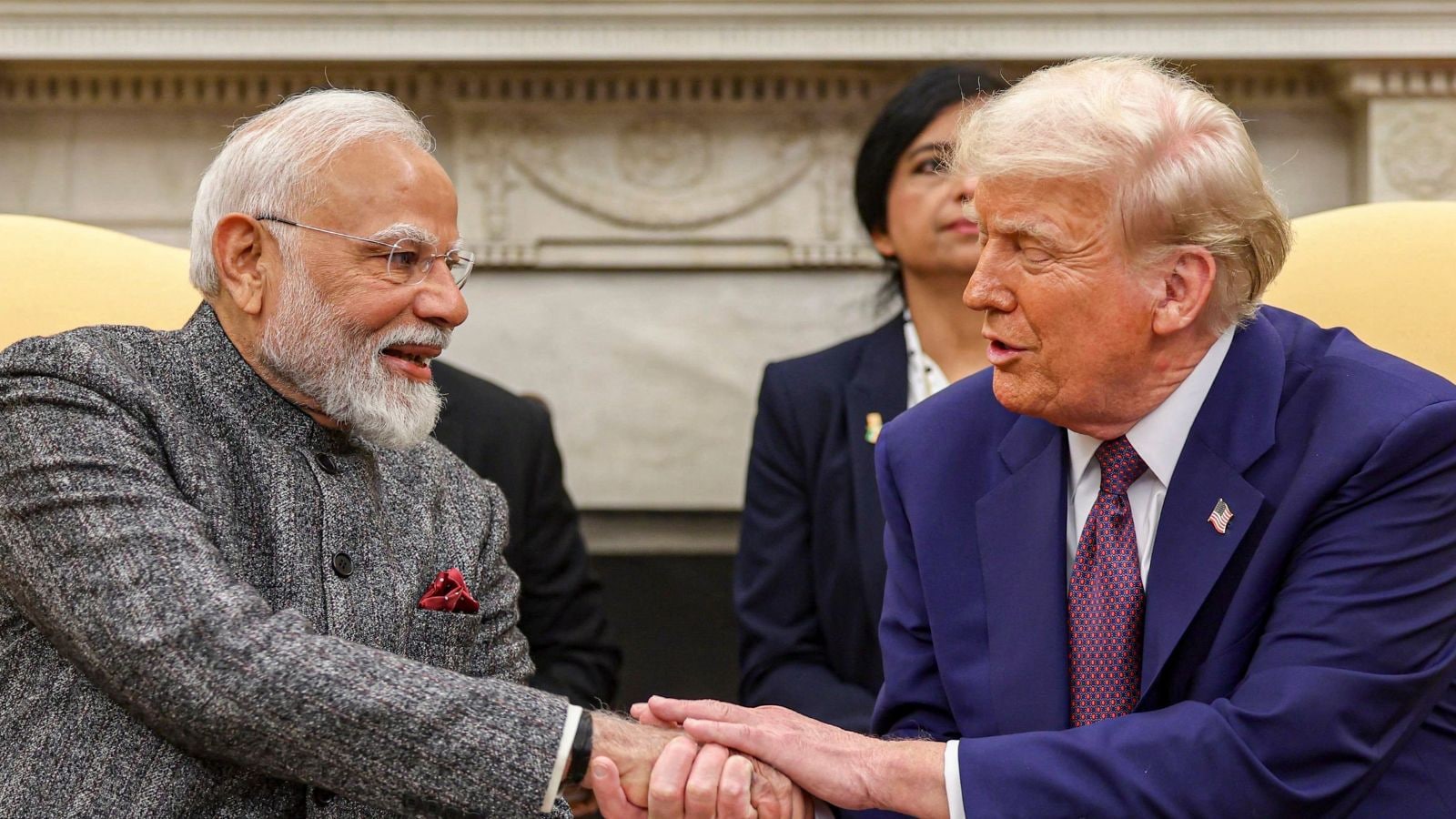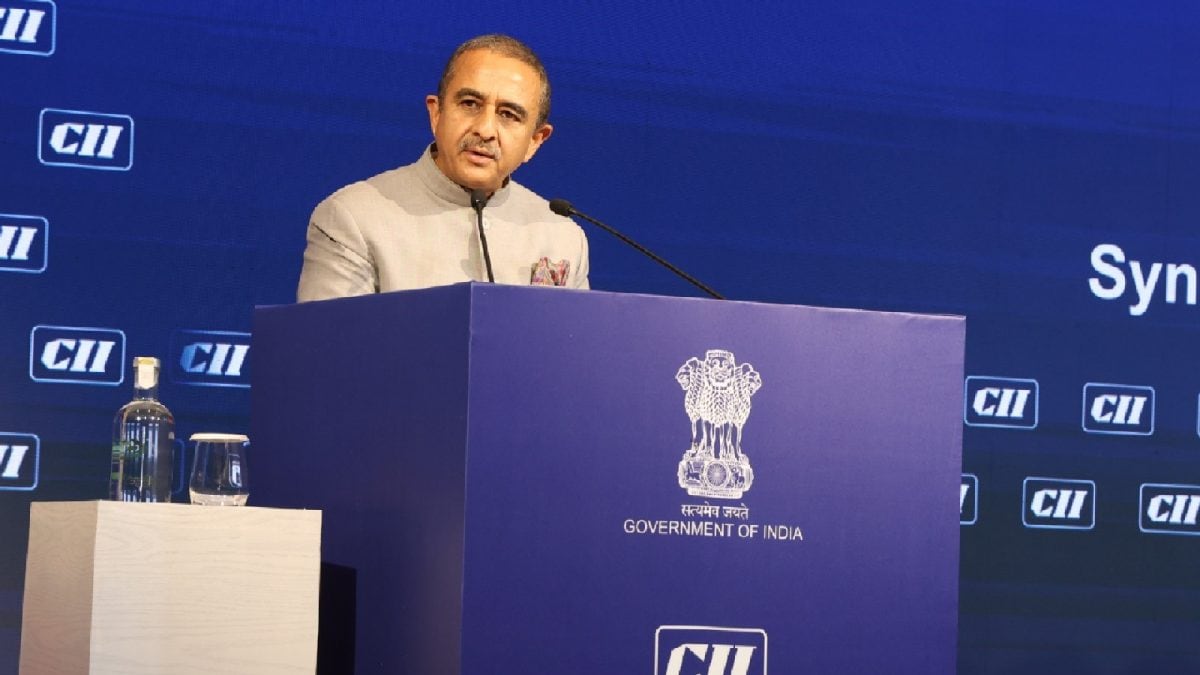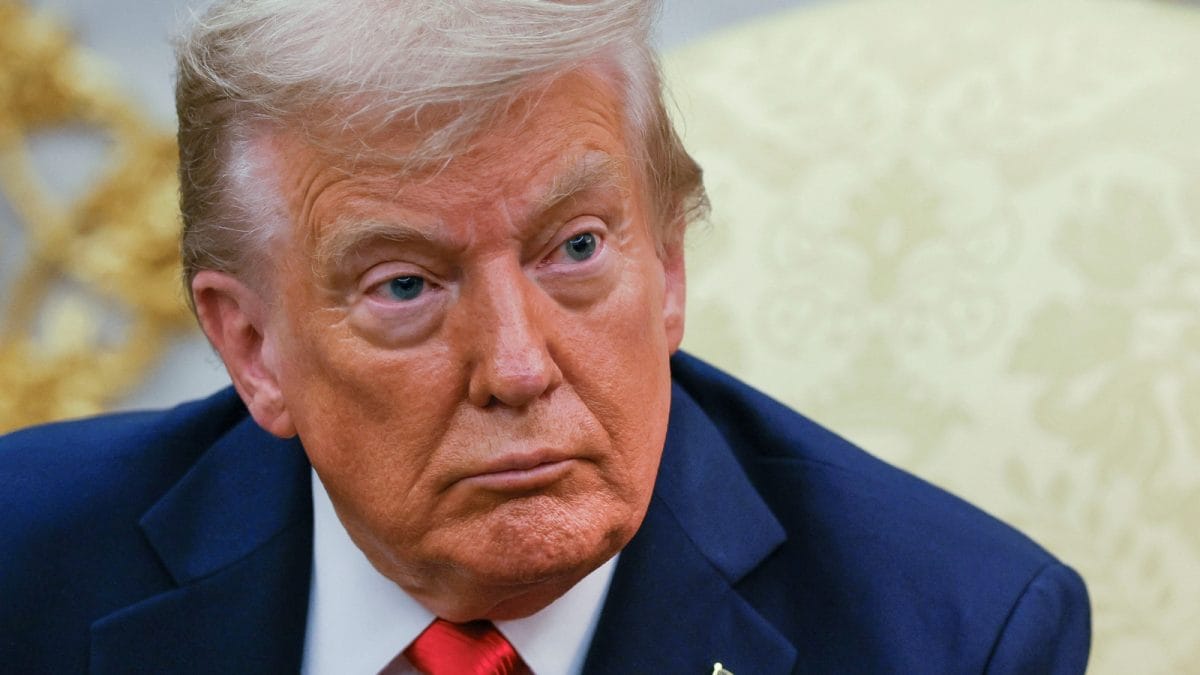'We can't make everyone 100% happy,' says Johnson as it remains unclear if he has the numbers to pass bill
Speaker Mike Johnson has said “very positive” progress has been made toward passing Donald Trump’s megabill, but acknowledged that “we can’t make everyone 100% happy” with the final package, CNN reports.
CNN quotes Johnson as telling reporters:
When you have a piece of legislation that is this comprehensive and with so many agenda items involved, you’re going to have lots of different priorities and preferences among people because they represent different districts and they have different interests.
But we can’t make everyone 100% happy. It’s impossible. This is a deliberative body. It’s a legislative process. By definition, all of us have to give up on our personal preferences. [I’m] never going to ask anybody to compromise core principles, but preferences must be yielded for the greater good, and that’s what I think people are recognizing and come to grips with.
It remains unclear if he has the numbers needed to pass the bill as the House prepares to take a key procedural vote to get the bill closer to final passage.
Johnson said he – and Trump – have been speaking to conservative hardliners and swing-district Republicans all day about their concerns, adding that “there’s more conversations to be held”.
We’ve had lots of great conversations. I’ve met with individuals and groups all day long, as has the president - who’s fully engaged as well - trying to convince everybody this is the very best product that we can produce. There’s more conversations to be held.

Key events Show key events only Please turn on JavaScript to use this feature
The day so far
We are following developments in the US House on Wednesday, where the razor-thin Republican majority is trying to set up a vote on the version of Donald Trump’s tax-and-spending bill passed by the Senate.
For hours now, the House has been stalled on a procedural vote, which they needed to hold because of an error the House rules committee made when it drafted the rule governing what was then called the one big beautiful bill act (OBBA).
Right now the House speaker, Mike Johnson, and the White House are working to put pressure on a handful of Republican holdouts, to ensure that they will vote to approve the bill and get it to Trump to sign by his self-imposed Fourth of July deadline.
Here are some of the day’s main developments:
Speaker Mike Johnson said “very positive” progress has been made toward passing Trump’s megabill, but acknowledged that “we can’t make everyone 100% happy” with the final package.
Trump said that the chair of the Federal Reserve, Jerome Powell, “should resign immediately”, after the federal housing regulator called on Congress to investigate him for supposed “political bias”.
A federal court ruled that Trump exceeded his authority in suspending the right to apply for asylum at the southern border by claiming there was an “invasion” across the US-Mexico border.
Democratic representative Josh Riley of New York accused Republicans of hypocrisy during a debate on the House floor about the bill, which includes massive cuts to health care spending to fund tax cuts that go mostly to the wealthy. “Don’t tell me you give a shit about the middle class, when all you’re doing is shitting on the middle class”, Riley said.
The US and Vietnam struck a trade agreement that sets 20% tariffs on many of the Southeast Asian country’s exports following last-minute negotiations, Trump and Vietnamese state media said.
The Trump administration asked the Supreme Court to remove three Democratic members of the Consumer Product Safety Commission, who were fired by Trump and then reinstated by a federal judge.
Trump calls on Federal Reserve chair to 'resign immediately'
Writing on his social media platform, Truth Social, Donald Trump said on Wednesday that the chair of the Federal Reserve, Jerome Powell, “should resign immediately”. The president of the United States referred to the central banker by the nickname he has assigned to him, and added three exclamation marks to his statement.
Trump also shared a news report on Bill Pulte, the Federal Housing Finance Agency director, asking Congress to investigate Powell.
In a letter released on Wednesday, Pulte called on Congress to investigate what he called Powell’s “political bias, and his deceptive Senate testimony, which is enough to be removed ‘for cause’”.
Pulte also claimed that Powell had lied about upgrades at the central bank’s headquarters.
Trump has complained repeatedly that Powell has been slow to drop interest rates, and given him the nickname “Too Late”.
On Tuesday, Powell blamed Trump’s tariffs for preventing the immediate interest rate cuts the president has demanded.
With huge cuts to health insurance coverage in the Republican bill, it is not surprising that Barack Obama, the former president, has spoken out against it and is urging Americans to call their representatives and press them to vote against it.
“More than 16 million Americans are at risk of losing their health care because Republicans in Congress are rushing to pass a bill that would cut federal funding for Medicaid and weaken the Affordable Care Act,” Obama wrote on social media. “If the House passes this bill, it will increase costs and hurt working class families for generations to come. Call your representative today and tell them to vote no on this bill.”
Representative Derrick Van Orden, a Wisconsin Republican, made some waves earlier in the day when he took issue with a reporter who asked him whether Republicans in Congress were being “led by the nose by President Trump”.
“The president of the United States didn’t give us an assignment,” Van Orden told Kenzie Nguyen, a student journalist interning for Punchbowl News. “We’re not a bunch of little bitches around here, OK? I’m a member of Congress. I represent almost 800,000 Wisconsinites.”
Van Orden’s press office did not dispute that the representative, a former Navy Seal, had used that salty language, but scolded the reporter for not adding that he also “stated that President Trump is the leader of the GOP and House Republicans are working in close collaboration with the administration on this bill”.
Van Orden, his press office said, “looks forward to passing the One, Big, Beautiful Bill and getting it to President Trump’s desk to be signed into law”.
Jake Sherman, the founder of Punchbowl News, which reports exhaustively on Congress, warns that even if House Republicans get the necessary votes to pass the rule, a vote on the final passage might not come until very late at night.
After the rule is passed, there still needs to be a debate, and the House Democratic leader, Hakeem Jeffries, then gets “a magic minute”, a House custom that allows party leaders to speak for as long as they want to. Jeffries reportedly plans to speak for an hour, well short of the record, set in 2021 by former Republican leader Kevin McCarthy, whose “minute” lasted eight hours and 32 minutes.
As we continue to wait for a handful of Republican holdouts to vote for, or against, the rule that would permit the massive tax-and-spending bill to be taken up by the House, Mike Johnson, the Republican speaker, is urging his members to vote for the bill passed by the Senate.
“Even though the Senate modified some of our product,” Johnson told reporters, “most of our agenda is wrapped up into this legislation. So it must pass. We have to deliver for the people. The president wants to do it.”
“I think everyone’s trying to get to yes,” he added. “And I believe we will.”
Representative Victoria Spartz, a Ukrainian-born Indiana Republican, has taken one of the oddest possible positions by saying that she intends to vote for the bill, praising its tax cuts and spending on immigration enforcement, but will vote against the rule, which has to pass for a vote on the bill to actually take place.
Spartz explained in a radio interview on Tuesday that the version of the bill passed by the Senate exceeds by roughly half a trillion dollars a fiscal framework she and 30 other Republicans in the House support, which set a maximum amount of unfunded commitments. According to Spartz, the speaker, Mike Johnson, broke a promise to not bring any bill up for a vote that added more to the debt than the framework permits.
Spartz, who has previously compared the national debt to “a ticking time bomb”, said she is not convinced by arguments from the White House that the tax cuts will stimulate economic growth to such an extent that they will pay for themselves.
The non-partisan Penn Wharton budget model estimated on Tuesday that the Senate-passed reconciliation bill “increases primary deficits by $3.1 trillion over 10 years. The dynamic cost, including changes to the economy, is larger at $3.5 trillion. GDP falls by 0.3 in 10 years and falls by 4.6 in 30 years.”

Chris Stein
Here’s what Democratic representative Eric Swalwell thinks of the slowdown in voting on the tax-and-spending bill, which has been credited to discontent among rightwing Republican lawmakers.
“We aren’t delayed because moderates whose constituents will be completely screwed are holding out. We are delayed because the most extreme members who want to hurt MORE people are holding out,” he wrote on X.
Democrats do not have the numbers to stop the bill from passing the House, and Republican infighting is what is keeping it from advancing.
A CIA review released on Wednesday found flaws in the production of a 2016 US intelligence assessment that Russia’s president, Vladimir Putin, “aspired” to help Donald Trump defeat Hillary Clinton in that year’s presidential election, but it did not contest that conclusion.
The declassified, eight-page review “does not dispute the quality and credibility” of a highly classified CIA report that the assessment’s authors relied on to reach that conclusion, it said.
But the review questioned the “high confidence” level that the CIA and FBI assigned the conclusion. It should have instead been given the “moderate confidence” rating reached by the Security Agency, the review said.
After a November 2017 meeting with Putin in Helsinki, Trump publicly rejected that US intelligence assessment, which had been made public in an unclassified version in January 2017, and said he accepted Putin’s denial that Russia had interfered in the election.
“President Putin said it’s not Russia,” Trump told reporters in Helsinki. “Let me just say, I don’t see any reason why it would be.”
At the same news conference in Helsinki, Putin was asked whether he had wanted Trump to win the 2016 election, and if he had directed any of his officials to help him do that. “Yes, I did,” Putin replied to the first part of the question, saying that he had hoped Trump would repair US-Russia ties. He avoided the second part of the question, about whether he directed anyone to help make that happen.
The CIA director, John Ratcliffe, a former representative who served as the director of national intelligence in Trump’s first term, ordered the review and its “lessons learned” section “to promote analytic objectivity and transparency”, said a CIA press release.
The CIA’s directorate of analysis, which conducted the review, “identified multiple procedural anomalies” in how the December 2016 classified assessment of Russian election interference was prepared.
They included “a highly compressed timeline ... and excessive involvement of agency heads” and “led to departures from standard practices in the drafting, coordination, and reviewing” of the report, it said.
“These departures impeded efforts to apply rigorous tradecraft, particularly to the assessment’s most contentious judgment,” it continued.
The review, however, did not overturn the judgment that Putin employed a disinformation and cyber-campaign to sway the 2016 vote to Trump over his Democratic challenger, Hillary Clinton. A 2018 bipartisan Senate intelligence committee report reached the same conclusion.

Chris Stein
There’s been some slight movement on the stalled procedural vote that is holding up the House’s consideration of Donald Trump’s tax-and-spending bill.
To recap, House Republicans managed to prevail earlier this afternoon in a different preliminary vote, but have stalled on a second one, which they only needed to hold because of an error the House rules committee made when it drafted the rule governing what was then called the one big beautiful bill act (OBBA).
For more than an hour, the vote count was tied at 212 in favor and 212 against. Over the past few minutes, two more yes votes came in, bringing the total to 214 in favor – enough for passage.
Nonetheless, the vote has not closed, and the House chamber is mostly empty, perhaps a sign that Mike Johnson and other GOP leaders don’t want to move forward to the next step, which is voting on the rule itself, because they have not swayed enough holdout votes.

 1 month ago
1 month ago













